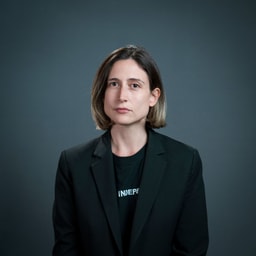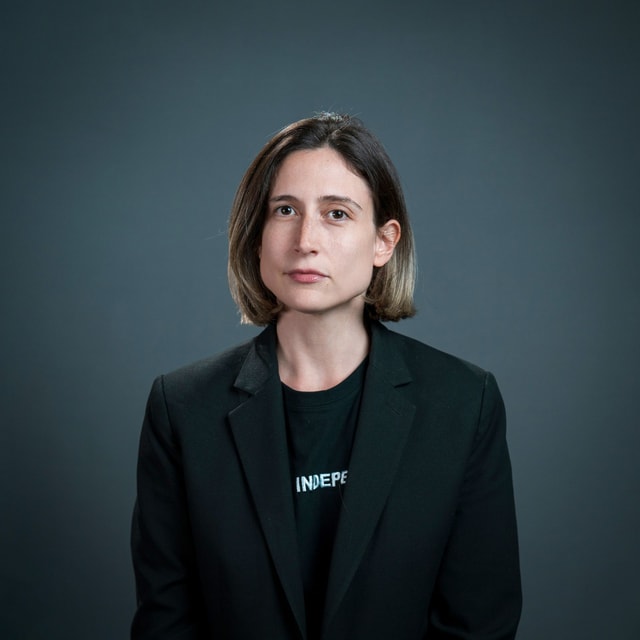Ukraine Business Roundup — Ukraine debates who serves and who doesn’t

The following is the Oct. 30, 2024 edition of our Ukraine Business Roundup weekly newsletter. To get the biggest news in business and tech from Ukraine directly in your inbox, subscribe here.
Companies in Ukraine that were expecting to be able to “reserve” their employees to shield them from military service might not be able to do so starting mid-November.
The government in Kyiv said over the last week that it is currently doing an audit of the exemption process until Nov. 15 to assess which businesses qualify for "critical enterprise status" that allows them to keep some employees from having to serve.
Since the start of the full-scale invasion, Ukraine has allowed some men of conscription age to be spared from conscription as a way of keeping strategic sectors, including the defense industry, afloat and to curb the toll Russia’s war has taken on the economy.
But as the war extends into its third year, Ukraine is struggling to mobilize enough soldiers to compensate for troop casualties and the need to rotate soldiers who have been fighting since 2022.
It’s a thorny issue in Ukraine, with some feeling it is unfair that others don’t have to serve depending on their professions. It has also led to abuse of the system.
Around 1.5 million people in Ukraine were exempt from military service in mid-August.
President Volodymyr Zelensky is reportedly unhappy with how high that figure is, as well as the fact that the number almost doubled over a couple of months, an unnamed high-ranking official in the Presidential Office told NV, leading to the decision to carry out the audit.
"The reason for the audit is the abnormal increase in the number of critical enterprises and the number of reserved employees. This is done in the interest of strengthening the country's defense capability and preventing abuses," the Cabinet of Ministers said.
The government also said over the weekend that employees in “strategically important sectors of the economy” who received an exemption from military service before May 31, 2024 would be able to extend that status.
Stay tuned for more developments on this front.

Naftogaz wins against Russia
A Finnish court ruled in favor of Ukraine’s state-owned oil and gas giant Naftogaz to seize Russian assets in Finland worth tens of millions of dollars as part of a claim against Russia over its annexation of Crimea, Naftogaz said on Oct. 28.
A tribunal in The Hague ordered Russia in 2023 to pay $5 billion to Naftogaz as compensation for assets illegally seized during the Russian occupation of Crimea in 2014, but Russia had not yet done so.
"Since Russia refuses to voluntarily pay Naftogaz the funds stipulated by The Hague decision, we continue to use all available mechanisms to collect them. Today, we are one step closer to restoring justice," Naftogaz CEO Oleksii Chernyshov said following the Finnish court’s decision.
Finnish authorities began confiscating Russian state property on Oct. 28, the Finnish daily Helsingin Sanomat reported, seizing the Russian Center of Science and Culture in Helsinki.
Russia said it would challenge the decision in court, with Russian president’s spokesperson Dmitry Peskov telling reporters that Moscow would “use all legal mechanisms to protect our interests.”

Real estate mogul dies at 61
Businessman Adnan Kivan, owner of the Kadorr Group and the English-language Ukrainian news outlet Kyiv Post, passed away on Oct. 28, the group said in a statement.
The Odesa-based millionaire and investor of Syrian origin would have turned 62 in December. The statement did not specify the cause of death.
The Kadorr Group is known mainly for its construction and real estate projects. In 2021, Forbes Ukraine listed Kivan as the 42nd richest person in Ukraine with a fortune of $240 million. His group was also involved in agriculture and media.
Kivan purchased the Kyiv Post in 2018 from British-Ukrainian businessman Mohammad Zahoor. Conflicts over editorial independence with the newsroom led to Kivan suspending the Kyiv Post and firing the staff in November 2021.
The Kyiv Post's former editorial team founded the Kyiv Independent immediately after they were fired. It is now the largest English-language media outlet in the country.

Cash for everyone
Late last week, President Volodymyr Zelensky’s government made a decision that gave everyone Covid flashbacks — that every Ukrainian, including children, would receive a one-time payment of Hr 1,000 (around $24) “to support the population in winter.”
But wait, isn’t Ukraine’s budget and military starving for money? According to the government, the payments will come from funds provided to Kyiv by its international partners that need to be used up before the end of the year and can’t be directed to the military.
The money will only be able to be spent on things like utilities, medicine, transport, cell phone plans, buying Ukrainian books, and other various services. The government has also said people can donate their money to the army, if they wish.
It’s unclear yet how much in funds will be disbursed, but one deputy economy minister said that a similar move during the Covid-19 pandemic cost the government around Hr 8 billion, or nearly $200 million.
“The final amount of this program for three winter months will depend on the number of Ukrainians who want to use this program. It is not possible to name the final amount now," deputy minister Oleksiy Sobolev said. Those who “don’t want” to use the program may not want to have to go through the trouble of opening the special account they would have to in order to receive the funds.
There have been lots of reactions, to some wondering why the government isn’t directing the funds to investments, or to to low-income families, to others wondering how it’ll work logistically to get money to children and the elderly that don’t have easy access to bank services.
The government defended its decision, with Prime Minister Denys Shmyhal saying that the move has three major goals: financially support Ukrainian families, activate domestic demand for Ukrainian services, and “demonstrate the unity of Ukrainian society for our stability and victory.”
If you live in Ukraine — especially in Kyiv — you know first hand that 24 bucks doesn’t get you very far at all. Personally, I suspect many people will donate their money to the military.

Russia gets a pass, again
After days of discussions, the world’s leading anti-money laundering watchdog, the Financial Action Task Force (FATF), opted last week not to blacklist Russia despite efforts from Kyiv to sway members to do so over the Kremlin’s increasingly closer ties with blacklisted North Korea and Iran.
The FATF’s decision to not blacklist Russia has instead again unearthed the lack of leadership among the West when it comes to curtailing Russia, Timothy Ash, a senior emerging market (EM) sovereign strategist at BlueBay Asset Management, told the Kyiv Independent.
“This should have been a slam dunk,” he said.
Read more here.
What else is happening
Ukrainian agricultural giant attracts $150 million loan from international lenders
Kernel — one of Ukraine’s largest agricultural holdings — said in a post on Facebook that for the first time since the start of the full-scale invasion, it had received an $150-million loan from group of European banks, including Dutch commercial banks ING Bank and Coöperatieve Rabobank, and the Black Sea Trade and Development Bank. The funds will be used to support operations aimed at increasing exports of Ukrainian agricultural products, including sunflower oil, the company said.
G7 to provide Ukraine $50 billion in loans backed by frozen Russian assets
The Group of Seven (G7) has reached an agreement to provide Ukraine with approximately $50 billion in loans backed by the revenue from foreign Russian assets, the G7 announced on Oct. 25. "Our aim is to begin disbursing the funds by the end of the year," a statement from the G7 leaders read.
German Rheinmetall plant in Ukraine is 'legitimate' target for Russia, Kremlin says
The new factory of German arms manufacturer Rheinmetall, which opened in late October in Ukraine, is a "legitimate" target for Russian attacks, Kremlin spokesperson Dmitry Peskov told Russian pro-state news agency Ria Novosti on Oct. 29. The facility, which is already operating in Ukraine at an undisclosed location, is set to produce a batch of Lynx infantry fighting vehicles by the end of the year, according to Rheinmetall CEO Armin Papperger.
EU to increase capacity to export electricity to Ukraine to 2.1 gigawatts ahead of winter
The Transmission System Operators of Continental Europe will increase their export capacity to Ukraine and Moldova by 400 megawatts (MW) to 2.1 gigawatts (GW) starting Dec. 1, allowing Ukraine to rely more heavily on electricity imports this winter when blackouts are expected. Russia carried out a massive campaign of aerial attacks against Ukraine's energy infrastructure over the spring, destroying 9 GW worth of capacity on Ukraine's grid.
'We can't have a bad outcome,' JP Morgan Chase CEO says on Ukraine, Russia's nuclear threats
"Nuclear proliferation is the biggest risk mankind faces," JPMorgan Chase CEO Jamie Dimon said at an Institute for International Finance (IIF) event on Oct. 24. According to Dimon, the West has to have clarity and subordinate many things "to make sure that this ends up right."










